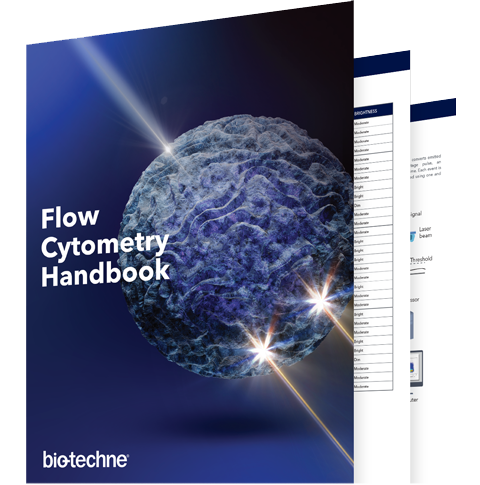What Are Isotype Control Antibodies
Isotype control antibodies are commonly used negative controls. Immunoassays utilize immunoglobulins to detect specific analytes. These immunoglobulins, however, can also bind to cellular proteins that are not their target antigen, generating non-specific signals. Additionally, cells and tissues used in immunoassays can exhibit natural fluorescence. To differentiate between specific signals and background staining, either due to non-specific binding or autofluorescence, isotype antibodies are used as experimental controls. Isotype controls are antibodies that match the species, isotype, and conjugation of the primary antibody, but are specific to analytes that are not found in sample type being analyzed, such as Keyhole Limpet Hemocyanin (KLH) and Hen Egg Lysozyme (HEL). They provide a means to measure background staining and indicate whether further experimental optimization is needed.
Selecting the Right Isotype Control Antibody
The proper isotype control antibody is needed to correctly interpret experimental results. The following characteristics of the isotype and primary antibodies should match as closely as possible.
- Antibody Species
The primary antibody and isotype control antibody should be from the same host species.
- Antibody Class and Subclass
The primary antibody and isotype control antibody should be of the same class and subclass so that they have the same heavy chain.
- Conjugation
Isotype and primary antibodies should have the same conjugation. If the primary antibody is not conjugated, an unconjugated isotype control should be used. Likewise, if the primary antibody is conjugated, the isotype antibody should be bound to the same label.
Applications for Isotype Control Antibodies
Isotype control antibodies are mostly used in flow cytometry experiments. In flow cytometry, antibodies can bind non-specifically to surface Fc receptors, producing background staining, which can confound the results. Background staining is especially problematic when analyzing rare cell populations or lowly expressed proteins, or when building multicolor flow cytometry panels. Using an isotype antibody that matches the species, class, conjugation, and concentration of the primary antibody allows for the differentiation between the specific signal and non-specific background staining. Isotype control antibodies can also be used as blocking and protein coating agents for other applications including ELISA, Western blot, immunohistochemistry, and immunocytochemistry.
Novus Biologicals™ Isotype Control Antibodies
Novus Biologicals, a Bio-Techne brand, provides a large portfolio of isotype control antibodies. Visit the Novus website to view their selection of isotype controls.
Additional Antibody Products
Flow Cytometry Workflow Solutions
Flow Cytometry Workflow Solutions
Explore our range of reagents for the entire flow cytometry workflow including flow cytometry-validated antibodies and multicolor flow cytometry kits.
Conjugated Primary Antibodies
Conjugated Primary Antibodies
Bio-Techne offers a large selection of primary antibodies conjugated to a variety of labels, both fluorescent and enzymatic, for easy analysis of multiple targets.
Secondary Antibodies
Secondary Antibodies
Explore our catalog of species-specific secondary antibodies that have been validated for multiple applications and conjugated to a variety of labels.
Additional Antibody-Related Resources
Flow Cytometry Handbook
Flow Cytometry Handbook
Download this handbook to get step-by-step protocols and troubleshooting tips for your flow cytometry experiments.
Flow Cytometry Training Webinars
Flow Cytometry Training Webinars
R&D Systems, a Bio-Techne brand, offers a set of webinars that demonstrate the basic concepts of flow cytometry, including how to run a multiparameter experiment.
Immunohistochemistry (IHC) Handbook
Immunohistochemistry (IHC) Handbook
Download this handbook to learn more about the techniques, protocols and troubleshooting methods that can help you run a successful IHC experiment.










